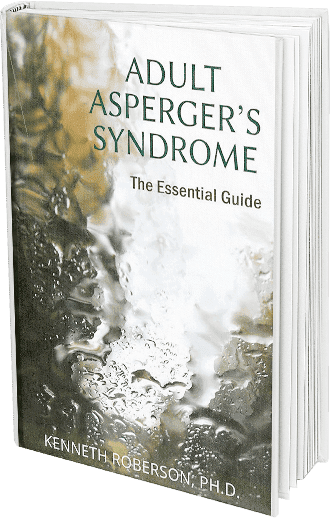
Previously, I wrote about medication and whether it is effective for Autism Spectrum Disorder (ASD). That article, however, focused on children and adolescents. Today, I want to take up the question of whether adults with ASD can benefit from medication.
To begin, experts agree there is no medication that will cure or treat the core symptoms of Autism, be they in adults, adolescents or children. In that sense, the title of this article is somewhat misleading, as one can’t take a medication specific to Autism Spectrum Disorder. Fortunately, that is not the end of the story.
A better question is whether any medication exists that can help people with ASD function better, and the answer is yes. There are medications that help manage depression, anxiety, irritability, rapid mood shifts, inability to focus and other challenges that accompany ASD. In many cases, these medications can lessen coexisting problems to the point where Autism no long is a hardship in the person’s life.
Here is a brief description of the major classes of these medications and why they can be useful in managing mental health or medical problems associated with Autism.
Autism Spectrum Disorder and ADHD
Statistics are hard to come by, but most accounts agree that Autism Spectrum Disorder and Attention-Deficit Hyperactivity Disorder overlap considerably. The similarities include:
- Impulsivity
- Distractibility
- Inattentiveness
- Delayed social skills
- Sensitivity to sound, light and texture
- Problems following directions
- Learning problems
- Coordination problems
Ritalin, Adderall, Concerta, Daytrana, Vyvanse and other ADHD medications are generally effective in reducing these shared symptoms, especially impulsivity and distractibility. As a result, social communication, self-regulation, and emotional stability tend to improve as well, so that the significant challenges of Autism are reduced. With such improvements, the case for trying ADHD medications makes sense for numerous adults with ASD.
Autism Spectrum Disorder and Depression
For many, having Autism Spectrum Disorder creates a sense of being unalterably different from others. The difficulty they have in forming satisfying relationships and successfully taking part in social activities leaves them vulnerable to feelings of inadequacy, low self-worth, alienation, and loneliness. These and other factors account for a significant percentage of adults with Autism who are depressed and an alarming number who have suicidal thoughts.
Prozac, Paxil, Lexapro, Celexa and Zoloft, all members of the selective serotonin reuptake inhibitors (SSRI) family of antidepressants are commonly used to treat these symptoms of depression.
Effexor and Cymbalta, antidepressants known as serotonin-norepinephrine reuptake inhibitors (SNRI), are an additional class of antidepressants used in treating adults with ASD.
Wellbutrin and Zyban, known as norepinephrine-dopamine reuptake inhibitors (NDRI) are also effective for treatment of depression as are Nardil and Manerix, part of the monoamine oxidase inhibitor (MAOI) group of antidepressants, although this latter class of antidepressants is typically used only when others are ineffective.
Generally, antidepressants are effective and extremely beneficial. While some object to medication as a treatment of ASD and to their possible side effects, the efficacy of antidepressant treatment gives me confidence, as an Autism psychologist, to recommend it when someone experiences troubling periods of depression.
Autism Spectrum Disorder and Anxiety
If depression is the reaction to past unwanted events, anxiety is the expectation of unwanted events happening in the future. Commonly, adults with Autism Spectrum Disorder assume they will re-experience their past disappointments and failures. Whether it be rejection, job loss, loneliness, social missteps or any host of possible and/or perceived misfortunes, they anticipate something bad happening right around the corner, and the result is constant anxiety.
For this reason, many adults with Autism receive additional diagnoses of social phobia, obsessive-compulsive disorder, panic disorder, and generalized anxiety disorder.
Antidepressant medication, particularly SSRIs, is the most commonly prescribed medication class for adults with ASD. Prozac, Luvox, Celexa, Lexapro and Zoloft have all shown reasonable effectiveness in reducing anxiety in people with ASD.
Fewer studies, it appears, have looked at the effectiveness of other groups of antidepressant medications as well as medications that are strictly used for anxiety, many of which are taken on an as-needed basis rather than continuous, daily use.
Conclusion
Circling back to the title of this article, whether or not to take medication is a matter for every person to decide. Having Autism Spectrum Disorder, in and of itself, is not a reason for medication treatment. What should be the determining factor in most cases is whether the symptoms of ASD, such as impulsivity, depression, anxiety or others, cause significant hardship and, if so, whether there is reason to believe medication can be effective for those symptoms.
Should this be the case, consulting with a psychiatrist experienced in adult Autism Spectrum Disorder is the next, and proper, step to take.




